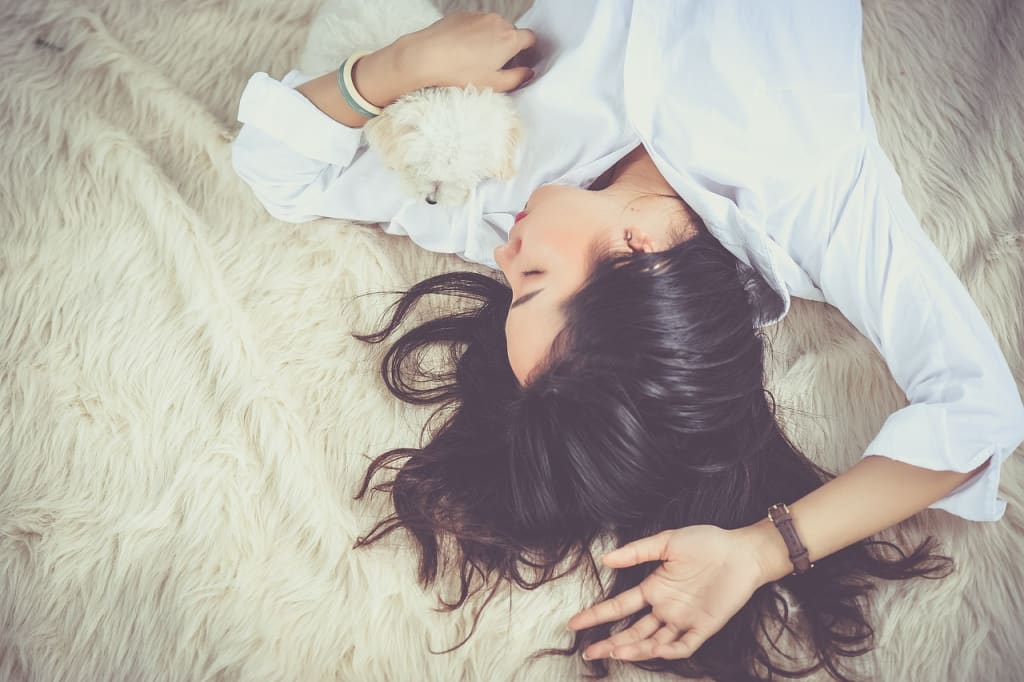How to Get Best sleep to Live Longer Life
Factors Affecting Sleep

How to Get Best sleep to Live Longer Life
Introduction
Sleep plays a crucial role in our overall health and well-being. However, many individuals struggle with sleep-related issues that significantly impact their daily lives. If you find yourself experiencing sleep disturbances, such as waking up between one and four in the morning, feeling tired and wired, or having difficulty falling asleep, you're not alone. In this article, we will explore the connection between cortisol levels and sleep patterns and provide effective strategies to promote better sleep.
The Role of Cortisol in Sleep Patterns
Cortisol, commonly known as the stress hormone, plays a vital role in regulating our sleep-wake cycles. In a balanced state, cortisol levels rise in the morning, providing energy and focus for the day. As evening approaches, cortisol levels should naturally decrease, allowing the body to relax and prepare for sleep. However, imbalances in cortisol levels can disrupt this process, leading to sleep difficulties.
Stress and Sleep Disruptions
Various psychological and physical stressors can affect our sleep. Worries related to work, family, or finances can keep our minds active and prevent us from falling asleep peacefully. Additionally, factors like lack of exercise, excessive screen time, poor dietary choices, hormonal imbalances, and environmental toxins contribute to increased stress levels and inflammation, ultimately impacting our sleep quality.
Factors Affecting Sleep-Wake Cycles
To improve sleep, it is essential to address lifestyle factors that can disrupt our natural sleep-wake cycles. Establishing a regular sleep schedule helps synchronize our internal clock, making it easier to fall asleep and wake up at consistent times. Proper nutrition, including avoiding heavy meals before bed and managing blood sugar levels, also contributes to better sleep. Incorporating relaxation techniques and using supplements like magnesium and melatonin can further support deep and restful sleep.
Creating a Sleep-Supportive Environment
Your sleep environment plays a significant role in ensuring a restful sleep. Creating a sleep-supportive environment involves optimizing your bedroom for relaxation and comfort. Keep your bedroom cool, dark, and quiet to promote better sleep. Consider using blackout curtains or an eye mask to block out any unwanted light, and use earplugs or a white noise machine to drown out any disruptive sounds. Invest in a comfortable mattress and pillows that suit your preferences, and ensure good ventilation and airflow in the room.
Addressing Caffeine and Alcohol Consumption
Consuming caffeine and alcohol can have a significant impact on your sleep quality. Caffeine, found in coffee, tea, energy drinks, and chocolate, is a stimulant that can interfere with falling asleep and staying asleep. It is advisable to limit or avoid caffeine intake, especially in the afternoon and evening. On the other hand, although alcohol may initially make you feel sleepy, it can disrupt your sleep patterns, leading to fragmented and less restorative sleep. If you're experiencing sleep difficulties, it's best to minimize alcohol consumption, particularly close to bedtime.
Harnessing the Power of Sunlight
Sunlight exposure plays a crucial role in regulating our circadian rhythms, which help regulate sleep-wake cycles. Exposing yourself to natural sunlight, especially in the morning, can help reset your internal clock and promote better sleep. Spend time outdoors during the day, open your curtains to let in natural light, or consider using light therapy devices that mimic natural sunlight if you have limited access to sunlight.
Addressing Specific Sleep Issues
In some cases, sleep issues may be related to hormonal imbalances. For example, imbalances in estrogen and progesterone levels during menopause can contribute to sleep disturbances. Similarly, thyroid imbalances can affect sleep patterns. If you suspect that hormonal imbalances are affecting your sleep, it is advisable to consult with a healthcare professional who can provide appropriate evaluation and treatment options.
Additionally, certain sleep disorders, such as insomnia, sleep apnea, and restless leg syndrome, can significantly disrupt sleep. If you have persistent and unresolved sleep issues, it is important to seek professional help from a sleep specialist who can diagnose and treat these conditions effectively.
Additional Factors Impacting Sleep
Several other factors can impact sleep quality. Inflammation and food sensitivities can contribute to sleep disturbances, so it may be helpful to identify and address any underlying inflammatory conditions or dietary triggers. Mental health conditions, such as anxiety, depression, and chronic stress, can also affect sleep. It is crucial to prioritize mental health and seek appropriate support from mental health professionals when needed.
Conclusion
Sleep plays a vital role in our overall well-being, and disruptions in sleep can have significant impacts on our physical and mental health. By understanding the role of cortisol in sleep patterns and implementing effective strategies, such as managing stress, creating a sleep-supportive environment, addressing caffeine and alcohol consumption, harnessing sunlight, and seeking professional help for specific sleep issues, you can improve your sleep quality and wake up feeling refreshed and rejuvenated.
FAQs
1. How does stress affect sleep?
Stress can have a significant impact on sleep. Psychological and physical stressors can keep our minds active, making it difficult to fall asleep. Stress also affects cortisol levels, which can disrupt our natural sleep-wake cycles.
2. Can diet affect sleep?
Yes, diet can affect sleep. Heavy meals before bedtime, high sugar intake, and poor nutrition can disrupt sleep. It is important to manage blood sugar levels and consume a balanced diet to promote better sleep.
3. How can I create a sleep-friendly environment?
To create a sleep-friendly environment, keep your bedroom cool, dark, and quiet. Use blackout curtains, earplugs, or a white noise machine if needed. Invest in a comfortable mattress and pillows, and ensure good ventilation in the room.
4. How does caffeine impact sleep?
Caffeine is a stimulant that can interfere with sleep. It blocks the action of adenosine, a neurotransmitter that promotes sleepiness. By consuming caffeine, you can stay awake and alert, but it can also disrupt your sleep patterns. Caffeine has a half-life of about 5 to 6 hours, which means it takes that long for half of the caffeine to be eliminated from your body. Therefore, consuming caffeine too close to bedtime can make it difficult for you to fall asleep or stay asleep.
To minimize the impact of caffeine on your sleep, it is advisable to limit your consumption, especially in the afternoon and evening. Be mindful of not only coffee but also other sources of caffeine such as tea, energy drinks, soda, and chocolate. It is best to avoid consuming these beverages and foods close to bedtime to allow your body enough time to metabolize the caffeine.
5. How does alcohol affect sleep?
Although alcohol may initially make you feel sleepy, it can have negative effects on the quality of your sleep. Alcohol disrupts the normal sleep cycle by reducing the time spent in rapid eye movement (REM) sleep, which is important for restorative sleep and dreaming. It can also contribute to more frequent awakenings during the night and overall lighter sleep.
While a drink or two may not have a significant impact, consuming larger amounts of alcohol, especially close to bedtime, can disrupt your sleep patterns. If you're experiencing sleep difficulties, it is advisable to minimize alcohol consumption and avoid using alcohol as a sleep aid.
6. Can exercise help improve sleep?
Yes, regular exercise can have a positive impact on sleep. Physical activity promotes the release of endorphins, reduces stress, and helps regulate hormones, all of which can contribute to better sleep. However, it is important to note that the timing of exercise can affect sleep differently for each individual. Some people find that exercising too close to bedtime can make it difficult to fall asleep, while others may not experience any adverse effects. It's recommended to experiment with different exercise times and observe how it affects your sleep to find the optimal routine for you.
7. How long should I nap during the day?
The duration of a nap depends on your individual needs and schedule. Short power naps of about 10 to 20 minutes can provide a quick boost of energy and alertness without interfering with nighttime sleep. However, if you have more time available and feel the need for a longer nap, a 60 to 90-minute nap can allow you to go through a complete sleep cycle, including REM sleep, and can be particularly beneficial for improving creativity and problem-solving abilities. Keep in mind that longer naps may leave you feeling groggy upon waking, so it's important to find the right balance for your own sleep needs.
Remember, it's essential to listen to your body and prioritize consistent and restful sleep for your overall well-being. If you continue to experience persistent sleep difficulties, consulting with a healthcare professional or a sleep specialist is recommended to identify any underlying issues and receive appropriate guidance and treatment.





Comments
There are no comments for this story
Be the first to respond and start the conversation.